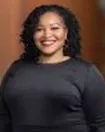- within Cannabis & Hemp, Privacy, Media, Telecoms, IT and Entertainment topic(s)
Highlights
A regional director of the National Labor Relations Board has ruled that non-scholarship student-athletes on the Dartmouth men's basketball team are “employees” under federal law. The decision gives the basketball team the right to vote to unionize, which would force Dartmouth to collectively bargain with its student-athletes
Dartmouth is appealing the regional director's decision to the full Board—and then likely to the courts—but the appeal does not delay the union election
With that appeal trajectory, this questionable, regional decision is unlikely to have an immediate impact beyond Hanover, NH. However, coupled with other legal attacks to declare student-athletes as employees—such as the pending NLRB case against USC, the Pac-12 and the NCAA—university athletics departments are exposed to several legal risks and burdens within and beyond labor law
It is not even March and the madness has already begun. On Feb. 5, National Labor Relations Board (NLRB) Regional Director Laura Sacks issued an administrative decision (1) finding that Dartmouth University's men's basketball players are “employees” of the school and (2) directing an election in which the players can vote to join a labor union.
The upshot is that if the student-athletes vote to unionize, then Dartmouth would be required to bargain with the student-athletes about the terms and conditions of their “employment.” In the college athletics sphere, that could include practice, game, and travel schedules; training programs; facilities; academic requirements; and other decisions traditionally left to the discretion of the University's administration.
Prior NLRB Authority
The regional director's ruling found that Dartmouth's basketball players fit the “employee” definition under Section 2(3) of the National Labor Relations Act (NLRA). The decision relied on Columbia University, 364 NLRB 1080 (2016), where the Board held that student research assistants were “employees” under the NLRA because Columbia University “directed” their work and performance.
The Dartmouth decision also applied Northwestern University, 362 NLRB 1350 (2015), where another regional director determined Northwestern's scholarship football players could be “employees” under the NLRA. (The full Board later withdrew the opinion on appeal, and declined jurisdiction because of the detrimental effect on competition of impacting only the one private university in the Big Ten.) In this week's Dartmouth case, Regional Director Sacks noted that “nothing in [Northwestern's] decision precludes” the future exercise of jurisdiction over similar questions and highlighted its distinctions.
The Dartmouth outcome was likely predetermined when the NLRB's general counsel opined in a September 2021 memorandum—shortly after her appointment and with no case pending—that college athletes at private institutions should qualify as employees under the NLRA.
Dartmouth's Student-Athletes "Benefit Dartmouth,” Not Dartmouth Basketball
In her decision, Sacks emphasized her finding that the basketball players perform work that benefits Dartmouth University, the institution. That is, her decision focused on impacts to the university as an institution instead of those to the basketball program. It explained that certain student-athlete activities—like wearing the school jersey and engaging with potential-donor alumni—would result in donations to the institution, not necessarily the men's basketball program. The decision dismissed Dartmouth's argument that its men's basketball program consistently operates at a loss, explaining that profitability is irrelevant to one's status as an “employee.”
The Student-Athletes Are “Compensated”
Payment is also irrelevant to one's status as an “employee.” The decision also found that, although the players are not paid in wages or even in athletics-based scholarships, they still “perform work in exchange for compensation.” For example, the decision notes that the student-athletes receive things of “tangible value” such as room and board, game tickets, and apparel, plus other benefits like access to “academic support, career development, sports and counseling psychology, sports nutrition, leadership and mental performance training, strength and conditioning training, sports medicine, and integrative health and wellness.”
Dartmouth Exercises “Significant” Control
The decision also emphasized Dartmouth's “significant” control over the basketball players' “work,” and described Dartmouth's Student-Athlete Handbook as akin to an employee handbook. Plus, the student-athletes may “provide their basketball services” only for Dartmouth and, subject to some limitations from the NCAA and the Ivy League, Dartmouth has significant ability to determine when and where when the student-athletes will practice and play, review film, and participate in other team-related activities. For away games, Dartmouth “strictly supervis[es]” players' conduct outside the “confines of Dartmouth's campus.”
What's Next?
Dartmouth has indicated it will ask the full Board to review the regional director's decision. The Board's decision could then be appealed to the federal circuit court of appeals. Importantly, however, the appeals process will not delay the impact of the decision: the student-athletes may participate in a union election, regardless of a potential appeal.
Implications of Decision on Other Higher Education Institutions
Notably, the NLRA applies to private employers, and thus, excludes state universities. This affected the Board decision in the Northwestern case, where Northwestern was the only private institution in the otherwise all-public Big Ten. By contrast, all the Ivy League institutions are private. This private status may signal the limits of student-athletes as “employees” under the NLRA, even under the expansive reading of the Dartmouth decision and the 2021 memorandum.
That is why the University of Southern California case, with its trial scheduled to conclude on Feb. 9, is worth watching. In that case, the NLRB is attempting to extend its reach to public universities under a joint employer theory applied to the Pac-12 and the NCAA. If USC's scholarship student-athletes are deemed employees, and if the private NCAA is deemed a joint employer by the NLRB, then the Board theoretically could reach student-athletes at other, public universities who it considers to be jointly employed by the NCAA. Again, it would seem that the NLRB's overreach would give universities grounds for courtroom appeals.
Trends in Athletes-as-Employees
Despite strong reactions throughout the world of college athletics, the Dartmouth decision does not mean that the sky is falling. But the reasoning outlined in the decision opens the door for other employment issues on campuses beyond non-scholarship basketball players. If neither profitability nor payment matters, would the NLRB's rationale extend to all student-athletes on all teams at all colleges the NLRB can reach?
Meanwhile, the Third Circuit Court of Appeals is considering an early-stage denial of a motion to dismiss an action claiming that student-athletes should have protections under the Fair Labor Standards Act. While each of these cases is likely to take years to wind through the courts, the college sports industry may be evolving more rapidly than the law. The prospect for higher education institutions facing collective bargaining developments—voluntarily—in an attempt to otherwise avoid antitrust liabilities presents new risks under employment laws and warrants close attention.
The content of this article is intended to provide a general guide to the subject matter. Specialist advice should be sought about your specific circumstances.







